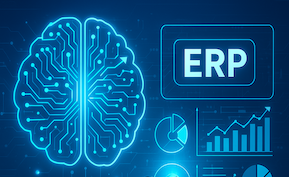Artificial Intelligence
Construction Management
AI Construction Software Implementation Timeline: Your 90-Day Transformation Strategy

AI construction software implementation success depends on achieving early wins that demonstrate value while building momentum for comprehensive transformation. This detailed 90-day transformation strategy provides construction companies with a proven framework for realizing immediate benefits from AI investment while establishing the foundation for long-term competitive advantage.
The Strategic Importance of Rapid Implementation
Building Organizational Confidence:
Early success demonstrates the value of AI construction software investment, generating enthusiasm and support from project teams, trades, and executives across the organization.
Momentum Generation:
Initial success creates positive momentum that accelerates adoption and reduces resistance to change. Project managers become advocates for the new system when they experience immediate improvements in their daily work.
Risk Mitigation:
Quick wins reduce implementation risk by validating technical architecture and construction processes early in the deployment. Issues can be identified and resolved before they impact critical project delivery.
Competitive Advantage Acceleration:
Immediate benefits begin generating competitive advantages from day one, improving project performance and client relationships while competitors continue with traditional methods.
Pre-Implementation Preparation (Weeks -4 to 0)
Week -4 to -3: Strategic Foundation
Project Team Assembly:
- Executive Champion: Senior leadership with decision-making authority and budget responsibility
- Construction Manager: Experienced leader responsible for operational implementation
- IT Integration Lead: Technical professional managing system integration and data migration
- Project Manager Representatives: Key PMs from different project types for user perspective
- Change Management Specialist: Expert in construction industry change management and adoption
Infrastructure Assessment:
- Internet connectivity evaluation at job sites and offices for cloud-based AI access
- Mobile device audit and upgrade planning for field teams
- Data backup and security protocols establishment
- Integration planning with existing systems (accounting, scheduling, document management)
Success Criteria Definition:
- Specific, measurable targets for 30, 60, and 90-day milestones
- Key performance indicators (KPIs) for monitoring progress and business impact
- User adoption goals and measurement methods
- Communication plan for celebrating successes and addressing challenges
Week -2 to -1: Technical Readiness
System Configuration:
- User accounts and permission structures for all project team members
- Project templates and standards configuration for different construction types
- Mobile device setup and testing for field personnel
- Integration testing with critical existing systems
Data Migration Preparation:
- Critical project data identification for immediate migration (active projects, key contacts, current schedules)
- Historical data analysis for AI algorithm training
- Data quality assessment and cleansing procedures
- Migration testing and validation protocols
Training Material Development:
- Quick reference guides for common AI features and workflows
- Video tutorials specific to construction use cases
- Mobile-friendly training content for field personnel
- Help desk procedures and escalation contacts
30-Day Foundation Phase: Immediate Impact
Week 1-2: Core System Activation
Day 1-3: Go-Live Execution
- System Access: All project team members can access AI construction software with appropriate permissions
- Mobile Deployment: Field personnel equipped with mobile access and basic training
- Communication Launch: Company-wide announcement of AI implementation with success expectations
- Support Activation: Help desk and technical support resources available for immediate assistance
Day 4-10: Essential Process Implementation
- Progress Tracking Automation: AI-powered progress monitoring replacing manual site visits
- Safety Monitoring Deployment: Computer vision safety systems activated on pilot projects
- Schedule Intelligence: AI scheduling optimization for resource and trade coordination
- Client Communication: Automated progress reporting and client dashboard access
Day 11-14: Process Refinement
- User Feedback Integration: Systematic collection and incorporation of field team feedback
- Workflow Optimization: Adjustment of processes based on initial usage patterns
- Performance Monitoring: Analysis of system performance and user adoption metrics
- Success Documentation: Capture and communication of early wins and benefits
Week 3-4: Intelligence Enhancement
AI Feature Expansion:
- Predictive Risk Analytics: Deployment of AI algorithms predicting project delays and cost overruns
- Quality Intelligence: Computer vision quality control and defect prediction
- Weather Integration: AI weather impact analysis and schedule optimization
- Resource Optimization: Intelligent crew and equipment allocation across multiple projects
Process Automation:
- Document Processing: AI-powered processing of invoices, change orders, and compliance documents
- Communication Automation: Intelligent stakeholder notifications and progress updates
- Inspection Scheduling: Automated inspection coordination and regulatory compliance tracking
- Subcontractor Coordination: AI-powered trade scheduling and performance monitoring
30-Day Success Targets:
- 95% user login rate with basic system proficiency
- 40% reduction in manual progress tracking time
- Real-time project status visibility for all stakeholders
- Initial predictive insights identifying potential project risks
60-Day Optimization Phase: Advanced Capabilities
Week 5-6: Advanced Intelligence Deployment
Sophisticated AI Features:
- Multi-Project Analytics: Cross-project pattern recognition and performance optimization
- Client Intelligence: Customer satisfaction prediction and relationship management
- Financial Forecasting: AI-powered cost prediction and cash flow management
- Competitive Intelligence: Market analysis and positioning optimization
Integration Enhancement:
- Accounting System Integration: Seamless financial data flow and automated cost tracking
- Supply Chain Coordination: AI-powered material ordering and delivery optimization
- Equipment Management: Predictive maintenance and utilization optimization
- Regulatory Compliance: Automated permit tracking and inspection management
Week 7-8: Performance Optimization
AI Algorithm Refinement:
- Learning System Optimization: Fine-tuning of AI models based on company-specific data and patterns
- Custom Intelligence Development: Implementation of company-specific AI applications and insights
- Advanced Analytics Configuration: Sophisticated business intelligence and predictive modeling
- User Experience Personalization: Customization of interfaces and workflows based on role and preferences
Operational Excellence:
- Quality System Integration: AI-powered quality management with automated defect detection
- Safety Performance Enhancement: Advanced safety analytics and incident prevention
- Client Experience Optimization: Personalized client communication and satisfaction management
- Vendor Performance Analytics: Intelligent subcontractor selection and relationship management
60-Day Success Targets:
- 60% improvement in project prediction accuracy for delays and cost overruns
- 50% reduction in safety incidents through AI monitoring and prevention
- 90% client satisfaction through proactive communication and transparency
- 25% improvement in overall project profitability through AI optimization
90-Day Excellence Phase: Competitive Advantage
Week 9-10: Strategic Intelligence Implementation
Market Intelligence Capabilities:
- Week 11-12: Excellence and Scalability
- System Optimization: Fine-tuning based on actual usage patterns and business requirements
- Advanced Training: Sophisticated feature training for power users and project managers
- Best Practice Integration: Implementation of AI-identified best practices across all projects
- Innovation Leadership: Position as technology leader in construction market
- Scalability Validation: Demonstration of system ability to handle increased project volume
- Process Standardization: Documentation and replication of optimized AI-enhanced workflows
- Knowledge Management: Creation of organizational knowledge base and expertise repository
- Expansion Planning: Strategic planning for geographic or market expansion using AI capabilities
- 50% improvement in overall operational efficiency across all projects
- 95% user adoption with advanced feature utilization
- Measurable competitive advantages in client satisfaction, delivery reliability, and cost management
- Strong foundation for continued AI evolution and construction industry leadership
- Multi-project dashboard with real-time status across entire portfolio
- AI-powered subcontractor coordination and performance tracking
- Automated client communication with predictive progress updates
- Risk analytics identifying potential delays and cost overruns
- Advanced resource optimization across multiple concurrent projects
- Predictive financial management and cash flow forecasting
- Intelligent change order processing and client approval optimization
- Cross-project performance analytics and best practice identification
- Market-leading project delivery reliability and client satisfaction
- AI-powered business development and competitive positioning
- Autonomous project coordination with minimal management oversight
- Strategic planning capabilities supporting aggressive growth plans
- Crew scheduling optimization for maximum productivity and utilization
- Safety monitoring specific to trade hazards and compliance requirements
- Quality control automation for trade-specific work standards
- Equipment management with predictive maintenance and optimal allocation
- Advanced resource optimization across multiple project sites
- Trade-specific AI features for specialized work requirements
- Client communication excellence demonstrating technical expertise
- Performance analytics identifying optimal project types and clients
- Industry leadership in trade-specific AI adoption and capability
- Premium pricing through demonstrated AI-enhanced quality and reliability
- Market differentiation through technology-enabled service excellence
- Scalable operations supporting expansion in specialized markets
- Customer communication automation with personalized progress tracking
- Quality monitoring and documentation for consistent home building standards
- Schedule coordination for trades and material deliveries
- Sales and construction alignment for improved customer experience
- Advanced customer intelligence and satisfaction management
- Quality prediction and defect prevention across all homes
- Resource optimization across multiple communities and home types
- Warranty management with predictive service requirements
- Industry-leading customer satisfaction and referral generation
- Superior quality consistency and warranty performance
- Market differentiation through technology-enabled customer experience
- Sustainable growth through AI-powered operational excellence
- Daily active users and session duration
- Feature utilization rates across different user roles
- User satisfaction scores and feedback sentiment
- Training completion rates and competency assessments
- Project delivery improvements (schedule, budget, quality)
- Safety performance enhancement and incident reduction
- Client satisfaction improvements and retention rates
- Resource utilization optimization and productivity gains
- Cost reduction through automation and efficiency improvements
- Revenue enhancement through improved delivery and client relationships
- Competitive advantage indicators and market position improvement
- Return on investment validation and value creation measurement
- Performance metric analysis and trend identification
- User feedback review and rapid response implementation
- System performance monitoring and optimization
- Success story documentation and communication
- Comprehensive performance review against established targets
- Process refinement based on usage patterns and outcomes
- Advanced feature deployment and capability expansion
- Training needs assessment and delivery
- ROI analysis and business case validation
- Market competitive position assessment and improvement planning
- Technology roadmap review and future capability planning
- Organizational development and capability enhancement
- Prevention: Comprehensive change management and early involvement of key users
- Resolution: Individual coaching and peer success story sharing
- Mitigation: Gradual feature introduction and continuous support
- Prevention: Thorough testing and phased integration approach
- Resolution: Dedicated technical support and vendor partnership
- Mitigation: Backup procedures and alternative workflow options
- Prevention: Clear communication of realistic timelines and expected benefits
- Resolution: Regular progress communication and expectation adjustment
- Mitigation: Focus on achieved benefits while addressing remaining challenges
- Visible executive support and regular engagement with implementation progress
- Clear communication of strategic importance and expected outcomes
- Resource allocation and priority setting for implementation activities
- Active participation in training and feedback processes
- Championship of new capabilities and success story sharing
- Continuous learning and capability development
- Robust system configuration and integration
- Proactive performance monitoring and optimization
- Rapid issue identification and resolution
Performance Maximization:
Growth Enablement:
90-Day Success Targets:
Construction Type-Specific Implementation Strategies
General Contractor Quick Wins
30-Day Targets:
60-Day Targets:
90-Day Targets:
Specialty Contractor Quick Wins
30-Day Targets:
60-Day Targets:
90-Day Targets:
Residential Builder Quick Wins
30-Day Targets:
60-Day Targets:
90-Day Targets:
Success Measurement and Continuous Improvement
Key Performance Indicators (KPIs)
User Adoption Metrics:
Operational Performance:
Business Impact:
Continuous Improvement Framework
Weekly Optimization:
Monthly Enhancement:
Quarterly Strategic Review:
Risk Management and Issue Resolution
Common Implementation Challenges
User Resistance Management:
Technical Integration Issues:
Performance Expectation Management:
Success Factors for 90-Day Transformation
Leadership Commitment:
User Engagement:
Technical Excellence:
Conclusion
The 90-day AI construction software transformation strategy provides organizations with a proven framework for achieving immediate value while establishing the foundation for long-term






